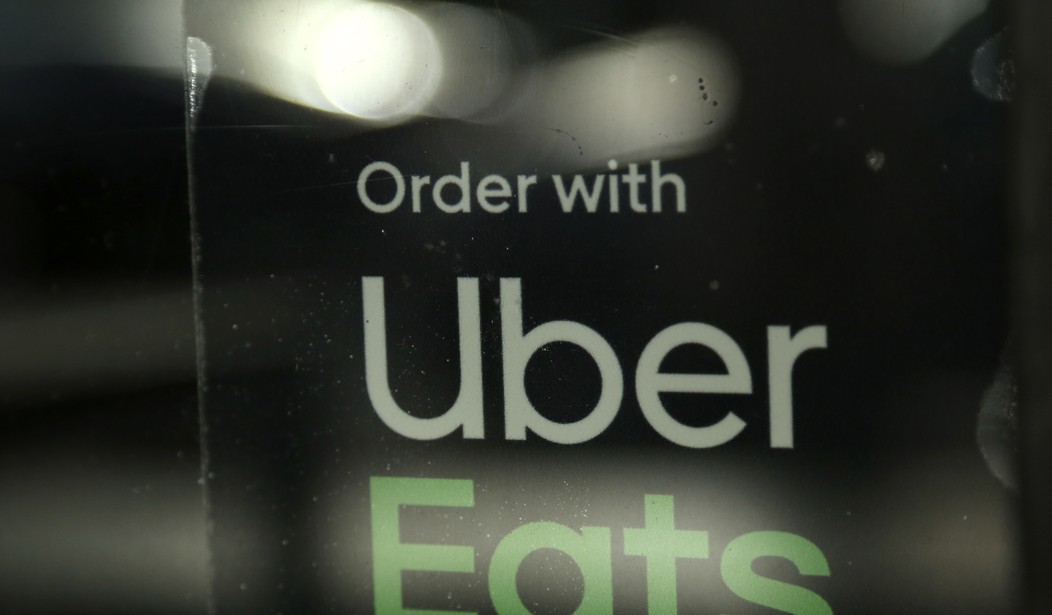On Wednesday, thousands of gig workers from rideshare and delivery services held a strike in major cities in the United States and the United Kingdom. Individuals working with companies like Uber, Lyft, Doordash, Deliveroo, and others made a bold statement against what they describe as lowered pay, dangerous working conditions, and a lack of transparency.
The strikes saw drivers rejecting requests to travel to and from major airports between the hours of 11 a.m. and 1 p.m. Instead of taking the requests, they protested against what they view as unfair treatment from the companies.
Thousands of drivers for ride-share platforms Uber and Lyft, as well as the food delivery service DoorDash are expected to strike on Wednesday, in what organizers say will be the largest nationwide protest action to date against the gig economy giants.
Strikes lasting 24 hours on Valentine’s Day — a busy day for the apps — have been planned in at least 17 U.S. cities, including Los Angeles, Chicago, San Francisco, Washington, Philadelphia and Orlando, according to two ride-share labor organizations.
Drivers say that Uber and Lyft are taking an increasingly large cut out of fares, forcing drivers to work longer hours to make ends meet. They are demanding a living wage that ensures drivers aren’t living in poverty, and transparency over how pay is calculated. They also want to end unfair deactivations — when a driver loses access to the platform, among other things.
In a Tuesday post on X, formerly known as Twitter, Justice for App Workers, an organization working to improve conditions for gig workers, announced the strike.
TOMORROW, workers across the country are going on strike to demand higher pay, better safety protections, and more.
We will refuse rides from the airport ALL DAY, with a rally from 11am-1pm in 10 cities.
The companies involved responded to CNN, claiming that they are doing their best to make life easier for their drivers.
A spokesperson for Lyft said the company was “constantly working to improve the driver experience” and had recently introduced a minimum weekly earnings guarantee to ensure drivers would always take home at least 70% of rider fares after external fees.
DoorDash said via a spokesperson that it did not expect any “significant impact” from the strike on Valentine’s Day, adding that the company was “always listening to Dashers and looking for ways to improve the platform.”
A spokesperson for Uber Eats said: “We know that the vast majority of couriers are satisfied with their experience on the app, and we regularly engage with couriers to look at how we can improve their experience.”
A spokesperson for Deliveroo also said the “overwhelming majority” of its riders were satisfied working for the company, and it offered riders insurance and sickness cover among other benefits. “We value dialogue with riders, which is why we have a voluntary partnership agreement with a trade union, which includes annual discussions on pay.”
The grievances that were aired on Valentine’s Day reflect a wider malaise in this segment of the gig economy. Rachel Gumpert from Justice for App Workers highlighted the reason for the disenchantment many gig workers are experiencing.
Rachel Gumpert described ride-hailing as a “mobile sweatshop,” with some workers routinely putting in 60 to 80 hours per week. Justice for App Workers, which says it represents 130,000 ride-hailing and delivery workers, is seeking higher wages, access to health care and an appeals process so companies can’t deactivate drivers without warning.
Gumpert said last year's strikes at U.S. automakers — which led to more lucrative contracts for their unionized workers — helped embolden ride-hailing workers.
“It’s incredibly inspiring. When one worker rises up, it brings courage to another workers,” Gumpert said.
The strikes reference one of several issues that gig workers face from the companies who employ them. But these workers, along with other independent contractors, are also facing more problems coming from the government.
The Department of Labor has instituted a new rule that will go into effect in March that threatens the very livelihood of those who choose independent work rather than a regular nine-to-five. Rep. Kevin Kiley (R-CA) highlighted the issue in a recent op-ed on RedState in which he wrote:
America has been a land of opportunity because citizens are empowered to pursue happiness in their own way. This means being able to pursue your own calling; to be a maker, a builder, a creator; to take your God-given talents, nurture them with heart and soul, and offer them to the world. In this way, the Biden Administration’s radical new Labor regulation is an attack on the very foundation of the American Dream. It is part of a concerted effort to limit or eliminate the gig economy, freelancing, independent contracting, self-employment, and alternate work arrangements that entire careers are based on and entire industries have been built around.
As America’s economy continues to evolve, these issues will become even more prominent on the national stage.













Join the conversation as a VIP Member